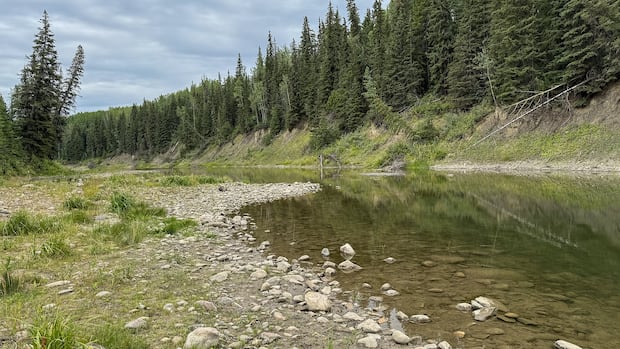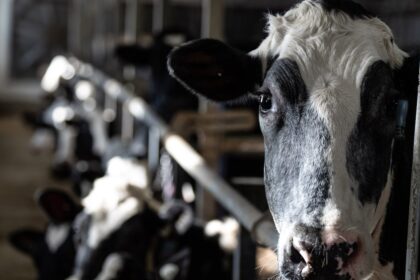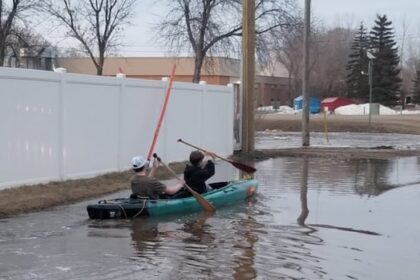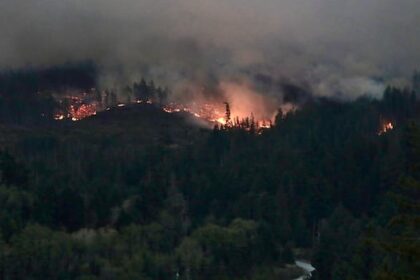British ColumbiaThe northeastern B.C. city of Dawson Creek says it’s concerned the Kiskatinaw River could freeze solid this winter amid an ongoing drought, forcing the community to rely entirely on stored water. City says they’re concerned they won’t be able to draw additional water if the Kiskatinaw River freezes againTom Summer · CBC News · Posted: Oct 29, 2025 3:32 PM EDT | Last Updated: 6 hours agoListen to this articleEstimated 2 minutesThe Kiskatinaw River, seen here in August, is the sole source of drinking water for the City of Dawson Creek and Village of Pouce Coupe, serving approximately 15,000 people. (Matt Preprost/CBC)The northeastern B.C. city of Dawson Creek has applied to extend a state of local emergency, as it grapples with a fourth-straight year of drought. City officials in a news release said they’re concerned the Kiskatinaw River is at risk of freezing solid again this winter. It froze in January 2024, forcing the city to rely entirely on stored water. The city’s sole source of water since 1942, the river is located about 10 kilometres west of Dawson Creek and provides drinking water for around 15,000 people in the city and surrounding area, including the Village of Pouce Coupe.If the river freezes, the city’s only water source will be from its reservoirs. Right now, the city says that stored supply could sustain the community for about 180 days, up from 150 days thanks to recent precipitation and careful management. The city remains under Stage 3 water conservation measures. Those prohibit people from hauling potable water for non-potable uses, with the city reminding residents, businesses and contractors to limit water consumption to essential needs only. The city has proposed a 52-kilometre water pipeline to address the water shortage, drawing from the Peace River near the neighbouring community of Taylor.Dawson Creek is seeking an exemption from the Environmental Assessment Office (EAO) to cut a five-year approval process down to two, fast-tracking the new water source. Any major projects like the pipeline require approval by the EAO, a regulatory agency within the provincial government.Residents got a chance to share their thoughts on the $100-million proposal at an open house held earlier this month as part of the consultation process.ABOUT THE AUTHORTom Summer is a reporter for CBC News in Fort St. John. Born and raised in the Peace Country, he previously reported for the Alaska Highway News, covering community issues, courts, municipal politics, and Site C, while travelling across Northeast B.C. working on the traditional territory of Treaty 8 First Nations. You can reach him at tom.summer@cbc.caWith files from Matt Preprost
Dawson Creek seeks to extend state of local emergency over worries drought-stricken water supply could freeze











